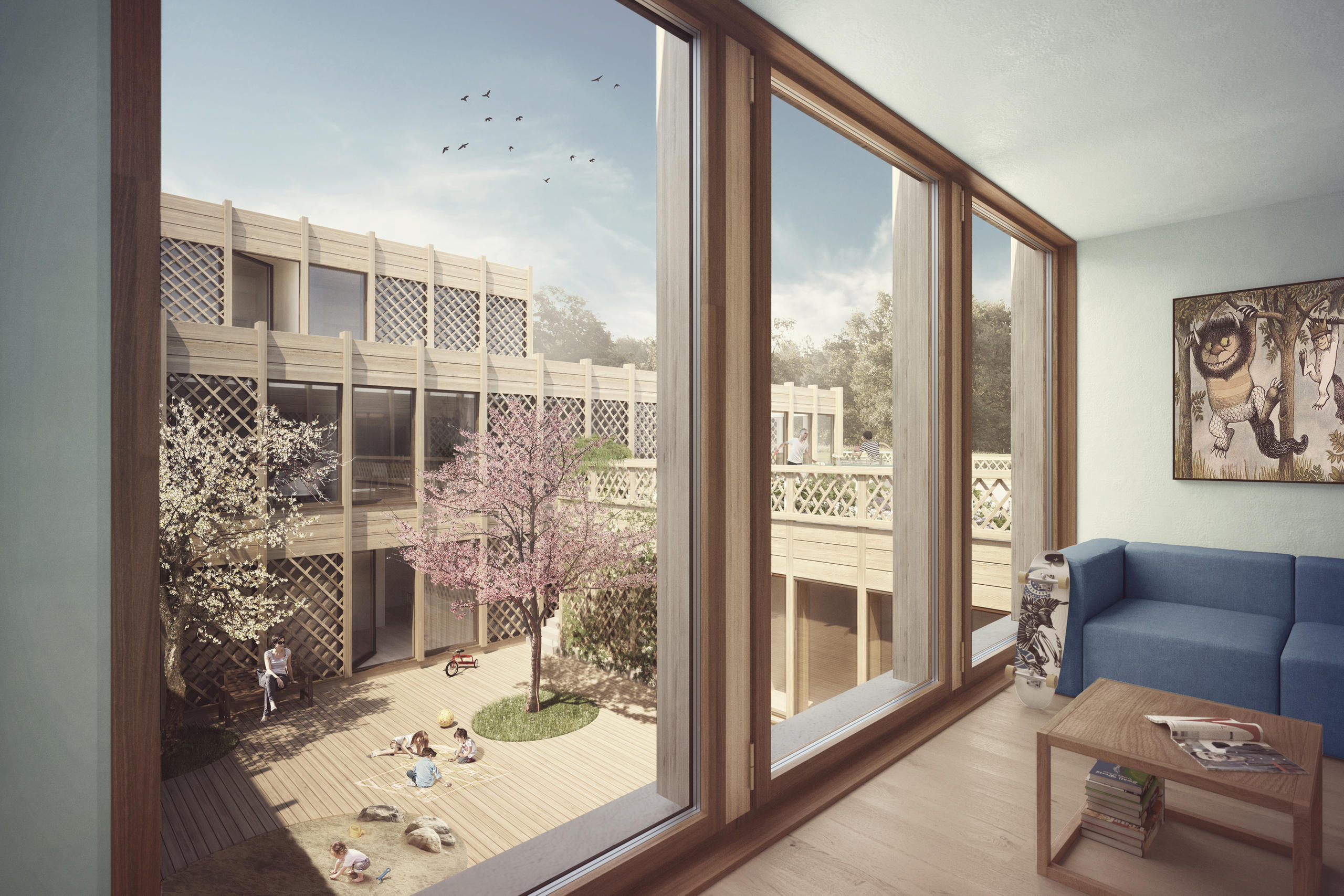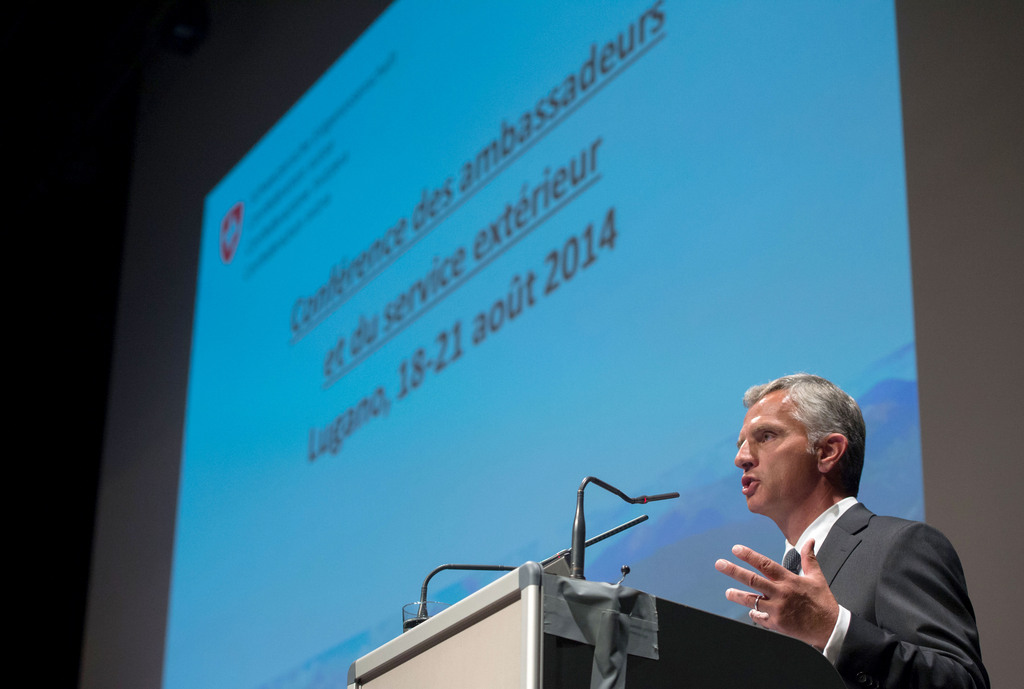How the Swiss compromise works – locally

Compromise is an integral part of the Swiss democratic process. In canton Basel city, it helped therapists and the city’s psychiatric hospital avoid a burdensome and costly popular vote over the location of child and youth mental health services.
In 2012 Basel University Psychiatric Hospital External linkannounced that it wanted to centralise the Child and Youth Psychiatric Clinic services – then spread over seven sites in the city – into a new location on its grounds. The new clinic would be next to the Adults’ Services.
But this was news to Peter Schwob and his therapist colleagues in Basel.
“It was clear to us that this could not be allowed to happen,” Schwob, head of the Basel and Region Psychotherapy Association,External link told swissinfo.ch. “It would have made it very difficult for parents of children and youth experiencing difficulties to get help as the association would have been made that if you experience problems in childhood and youth, this will continue into adulthood.”
It was not that Schwob and his colleagues disagreed with the basic idea of the proposal: the current locations needed updating. They just wanted all youth psychiatric services to stay in the city.
What the initiative was about
The cantonal people’s initiative: Child and Youth Psychiatric Clinic services in the heart of the cityExternal link – proposed that the child and youth services remained separate from the adults’ services and near the University Children’s Hospital. The University Psychiatric Hospital wanted the services centralised on its grounds, as part of its new strategic direction for these services.
Basel City Cantonal initiatives need 3,000 signatures, when seeking enactment, change or abolishment of constitutional or legal provisions or of a parliamentary decision in the canton. This initiative gained 3,470 signatures and was handed in on September 14, 2014. Basel City Cantonal initiatives can seek the enactment, change or abolishment of constitutional or legal provisions or of a parliamentary decision in the canton.
(Source: Canton Basel City Chancellery, initiative committee)
The decision to launch a cantonal people’s Initiative – whereby people can club together to force a vote on an issue – only came after all other avenues were exhausted.
“This was from the beginning a rather strange thing to do because it was a constitutional initiative,” Schwob said.
The location of child psychiatric services does not belong in the constitution, he explained. The psychiatric hospital is a public sector agency, run privately, but still belonging to the canton. But the initiative committee felt it had no alternative but to use “this too big an instrument of intervention”.
The committee handed in the initiative in September 2014. With no step forward from the cantonal government and parliament, the issue was set to come to a vote.
Compromise surprise
But last month – one and a half years later – came a joint media statementExternal link from the Canton Basel Health Department, University Psychiatric Hospital and the initiative committee saying a compromise had been found and the initiative withdrawn.
Outpatient services would stay in the city, in a new location. The day clinic and inpatient facilities, as well as the research department, would move to the grounds of the University Psychiatric Hospital.
Anne Lévy, head of the University Psychiatric Hospital, told swissinfo.ch, that it was important for the hospital to find a solution because it works closely with the therapists.
“So with the compromise we have a solution which is good for us, it means we can finally build the new children’s psychiatric hospital near the adults hospital so they will be all together on our campus. On the other hand, leaving the outpatient part of the hospital in the city centre is actually a good solution for us too. “
Schwob is also satisfied with the outcome. “We clearly didn’t get everything we wanted but we knew that if it was going to work there would have to be a compromise in the end.”
Advantages for all
There were other advantages to the compromise. Cantonal governmentExternal link spokesman Marco Greiner said that a public campaign would have been a burden for both parties and taken the focus off the well-being of young patients and their parents. Costs for a campaign have also been avoided.
“A compromise is an integral part of the political process. Often people launch quite radical initiatives because they are targeting a compromise from the start. When they don’t get the compromise they expect, they regularly don’t withdraw the initiative. The voters then can chose in a plebiscite between the initiative and the counterproposal of the government or parliament,” Greiner said in emailed comments.
However, he noted: “A compromise between the parties involved is much more unusual than a counterproposal from the government or parliament”.
In the past five years a total of 12 cantonal people’s initiatives were withdrawn in the cantonExternal link, mostly because the government or parliament came up with a counterproposal.

More
What’s a people’s or citizens’ initiative?
No figures exist showing how many initiatives were withdrawn in total at local or cantonal level in Switzerland. However, Georg LutzExternal link, professor of political science at the University of Lausanne, says national figures from 2010 show around 30% of people’s initiatives were withdrawn between 1891 and 2010, usually because parliament and government had proposed a compromise that fulfils some part of the initiative.
He points out that when a compromise is agreed the initiative then “becomes a tool of indirect legislation to put pressure on the political system, the representative system, to acknowledge the issue and to do something about it.”
“And those who initiate an initiative are sometimes quite happy that they don’t have to do a campaign and are happy to withdraw because it’s costly and you risk defeat.”
Lessons learned
For Lévy, the lessons learned from the experiences is “that it’s good to talk to partners, to actually find solutions.” A solution can be found when both sides have a clear idea of what they want and are prepared to concede, she says.
She now needs to find a location for the outpatient clinic and downsize the original merged hospital plans.
Schwob is amazed that launching an initiative had worked. Committee members had to work during their free time – or sometimes forego a work morning to attend meetings – and fund the committee themselves at the beginning.
The initiative committee is now dissolved, but the initiative association remains. Schwob has paid back all the campaign donations. A group will follow the progress of the outpatient clinic.
Would Schwob do it all again? “Yes of course,” he said. “Among those involved, we could go beyond professional and organisational boundaries. We could formulate our interests together. This was good.”

In compliance with the JTI standards
More: SWI swissinfo.ch certified by the Journalism Trust Initiative



You can find an overview of ongoing debates with our journalists here. Please join us!
If you want to start a conversation about a topic raised in this article or want to report factual errors, email us at english@swissinfo.ch.